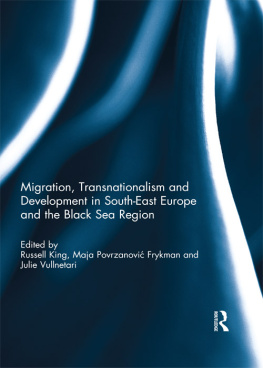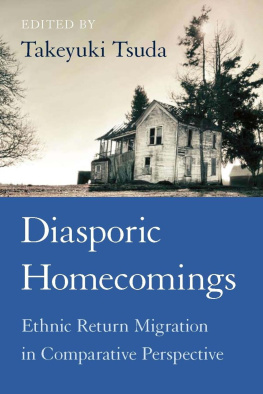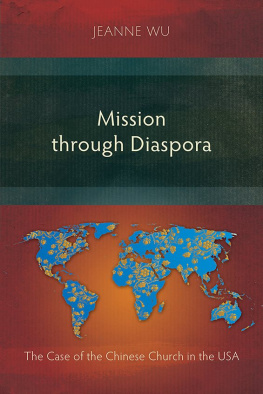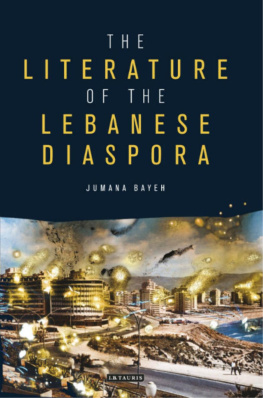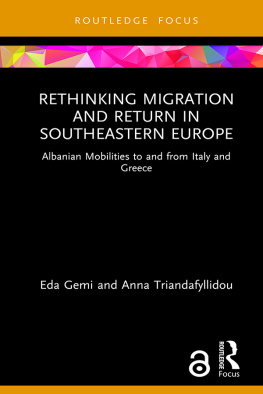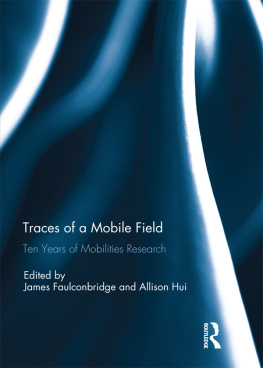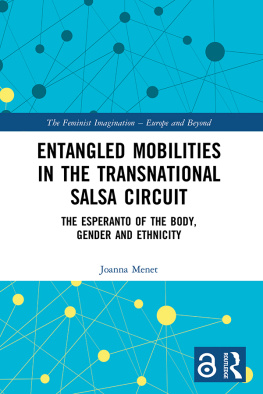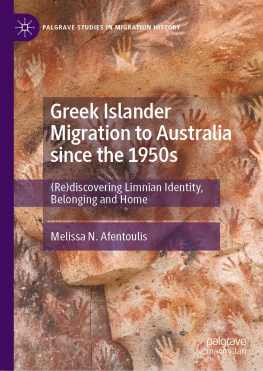
Links to the Diasporic Homeland
This book examines return mobilities to and from the ancestral homelands of the second generation and beyond. It presents cutting-edge empirical research framed within the mobilities, transnational and return migration/diaspora paradigms on a trans/local and global scale. The book is unique in presenting not only a variety of return movements, including short-term visits and longer-term return migrations, but also circulatory movements within transnational social fields, while engaging with notions of home, belonging, identity and generation. The individual contributions range widely over different ethnic, national, regional and global settings, including Europe, North America, the Caribbean, the Gulf and Africa. The result is a remapping of the conceptualisation of diaspora and of the role of successive generations in the diasporic experience, as well as a nuancing of the concepts of return migration and transnationalism by their extension to the second and subsequent generations of immigrants.
This book was originally published as a special issue of Mobilities.
Russell King is Professor of Geography at the University of Sussex, UK, and Visiting Professor of Migration at Malm University, Sweden. He was the Editor of the Journal of Ethnic and Migration Studies from 20002013.
Anastasia Christou is Reader in Sociology at Middlesex University, UK. She has conducted multi-sited, multi-method and comparative ethnographic research in the US, Germany, Denmark, Greece and Cyprus, and has widely published on issues of diasporas, return migration, second generation, ethnicity, transnationalism, identity, gender, home, belonging, emotion and narrativity.
Peggy Levitt is Professor of Sociology at Wellesley College, USA, and the Co-Director of the Transnational Studies Initiative at Harvard University, USA.
First published 2014
by Routledge
2 Park Square, Milton Park, Abingdon, Oxon, OX14 4RN, UK
and by Routledge
711 Third Avenue, New York, NY 10017, USA
Routledge is an imprint of the Taylor & Francis Group, an informa business
2014 Taylor & Francis
All rights reserved. No part of this book may be reprinted or reproduced or utilised in any form or by any electronic, mechanical, or other means, now known or hereafter invented, including photocopying and recording, or in any information storage or retrieval system, without permission in writing from the publishers.
Trademark notice: Product or corporate names may be trademarks or registered trademarks, and are used only for identification and explanation without intent to infringe.
British Library Cataloguing in Publication Data
A catalogue record for this book is available from the British Library
ISBN 13: 978-0-415-74515-4
Typeset in Times New Roman
by Taylor & Francis Books
Publishers Note
The publisher accepts responsibility for any inconsistencies that may have arisen during the conversion of this book from journal articles to book chapters, namely the possible inclusion of journal terminology.
Disclaimer
Every effort has been made to contact copyright holders for their permission to reprint material in this book. The publishers would be grateful to hear from any copyright holder who is not here acknowledged and will undertake to rectify any errors or omissions in future editions of this book.
Table of Contents
Russell King & Anastasia Christou
Peggy Levitt, Kristen Lucken & Melissa Barnett
Russell King, Anastasia Christou & Jill Ahrens
Zana Vathi & Russell King
Naluwembe Binaisa
Tracey Reynolds
Syed Ali
Ilse Van Liempt
Benedicte Ohrt Fehler
The chapters in this book were originally published in Mobilities , volume 6, issue 4 (November 2011). When citing this material, please use the original page numbering for each article, as follows:
Chapter 1
Of Counter-Diaspora and Reverse Transnationalism: Return Mobilities to and from the Ancestral Homeland
Russell King & Anastasia Christou
Mobilities , volume 6, issue 4 (November 2011) pp. 451466
Chapter 2
Beyond Home and Return: Negotiating Religious Identity across Time and Space through the Prism of the American Experience
Peggy Levitt, Kristen Lucken & Melissa Barnett
Mobilities , volume 6, issue 4 (November 2011) pp. 467482
Chapter 3
Diverse Mobilities: Second-Generation Greek-Germans Engage with the Homeland as Children and as Adults
Russell King, Anastasia Christou & Jill Ahrens
Mobilities , volume 6, issue 4 (November 2011) pp. 483502
Chapter 4
Return Visits of the Young Albanian Second Generation in Europe: Contrasting Themes and Comparative Host-Country Perspectives
Zana Vathi & Russell King
Mobilities , volume 6, issue 4 (November 2011) pp. 503518
Chapter 5
Negotiating Belonging to the Ancestral Homeland: Ugandan Refugee Descendents Return
Naluwembe Binaisa
Mobilities , volume 6, issue 4 (November 2011) pp. 519534
Chapter 6
Caribbean Second-Generation Return Migration: Transnational Family Relationships with Left-Behind Kin in Britain
Tracey Reynolds
Mobilities , volume 6, issue 4 (November 2011) pp. 535552
Chapter 7
Going and Coming and Going Again: Second-Generation Migrants in Dubai
Syed Ali
Mobilities , volume 6, issue 4 (November 2011) pp. 553568
Chapter 8
Young Dutch Somalis in the UK: Citizenship, Identities and Belonging in a Transnational Triangle
Ilse Van Liempt
Mobilities , volume 6, issue 4 (November 2011) pp. 569584
Chapter 9
(Re)constructing Roots: Genetics and the Return of African Americans to Ghana
Benedicte Ohrt Fehler
Mobilities , volume 6, issue 4 (November 2011) pp. 585600
Please direct any queries you may have about the citations to clsuk.permissions@cengage.com
RUSSELL KING & ANASTASIA CHRISTOU
Sussex Centre for Migration Research, University of Sussex, Brighton, UK
A BSTRACT This paper introduces the special issue on return mobilities. Return movements have been relatively ignored in migration and mobilities research, despite their scale, frequency and variety across time and space. This special issue is part of an overdue but now growing interest in return visits, return migration and transnational circulation which lays special emphasis on ancestral returns of the second generation and beyond. The main purpose of this paper is to develop an explanatory framework for locating return mobilities within three conceptual domains: the mobilities paradigm, the transnational approach and diaspora studies. A typology of return mobilities is then developed, onto which the following papers in this issue are mapped.
Introduction
One of Ravensteins famous laws of migration, set out in two papers published more than 120 years ago, was that every migration has a counter-current going in the opposite direction to the main migratory flow (1885, 1889). Ravenstein was imprecise about the exact nature and timing of the counter-flow: the implication was that it developed simultaneously with the main flow and was mainly made up of a different set of migrants rather than returnees from the principal migration. It was not until the 1970s that return migration started to be systematically analysed, categorised and theorised, Bovenkerks (1974) extended essay being the starting-point (see also Gmelch, 1980; King, 1978; Richmond, 1984). One of Bovenkerks types of return migration was ancestral return, but, after briefly mentioning the Back to Africa movement of the Rastafarians and the return of the Jews to Israel, he quickly dismissed this as return that is not return (1974, p. 19). We take issue with this throwaway remark, and the papers in this special issue illustrate the importance, richness and variety of return mobilities to ancestral and parental homelands. We disregard the issue of whether the statistics record this as return or not (much depends on how migration is measured by birthplace, nationality, ethnic origin etc.); what is important, we assert, is the emic perspective of the migrants themselves; if they believe they are returning to a homeland to which they have an emotional and historical connection, then it is the ontology rather than the statistical measurement of return which is the overriding criterion.


